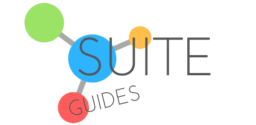If you’re creating a free Gmail account to send an anonymous tip, or to do sales outreach, you may pause to ask: Can Gmail be traced? How anonymous are you really when using Gmail? Well, Gmail can be traced. However, it can prove difficult to do so because of the way Gmail works. When you create a Gmail account, you are required to provide a phone number or another email address.
Gmail can be traced using the sender’s IP address, but only authorized individuals such as law enforcement or someone within the Google security team can access your information. Although your IP address can be accessed via emails you send, the information is not personally identifiable.
If you are concerned about your privacy, you can take steps to reduce the chances of your Gmail account being traced. Depending on how you use your account, there may be some options that can be quite effective.
| SuiteGuides.com is reader supported. If you make a purchase after clicking a link, we may earn a commission at no additional cost to you. |
What Is Gmail, And Why Should You Use It?
Gmail is a free email service provided by Google, though you can also set up a business Gmail account.
The free version of Gmail offers users 15 gigabytes of storage per account and can be accessed on the web or through the current mobile apps for Android and iOS devices. Gmail also provides features such as labels, filters, and chat.
- Some people choose to use Gmail because it is a secure and private way to communicate with others. Gmail is also less likely to be hacked than other email providers because it uses two-factor authentication and encrypts emails in transit.
- Another reason people use Gmail is that it integrates well with other Google products. For example, you can easily connect your Gmail account to YouTube or Google Drive. This can make it easier to share files and videos with others.
- Google has also been improving the presence of Google Workspace, which is a central hub that creates an interwoven user experience across all of its products. This includes a new interface for professional Gmail that is designed to make it easier to use on any device.
Gmail is one of the most popular email providers, which means it is easy to find people who also use it.
A huge team of support is available for Gmail users if you ever need help with anything. On top of this, there is a huge database as well as many third-party forums that cover any challenges you may encounter.
Whether it’s through community forums or direct help from Google, you can be sure that there is always someone available who is ready and willing to assist you with any problems you may have, and it’s likely a quick Google search will provide you with a solution to your issue.
How Does Gmail Work?
When you create a Gmail account, you are asked to provide a phone number or another email address. This is so Google can verify your identity and prevent someone else from using your account without your permission.

Gmail uses two-factor authentication, which means you must confirm your identity in two different ways before you can log in. In addition to your password, it can be a good idea to set up a code that is sent to your phone or email address.
Gmail also encrypts emails in transit. This means that the data being sent between two Gmail accounts is turned into a code that can only be read by the sender as well as the person who received the message. Even if anyone was able to intercept the email, they would not be able to read it.
Finally, Gmail uses algorithms to sort and prioritize your emails. This can be helpful if you are trying to find a specific email, but it also means that Google is scanning your emails.
However, Google has stated that this data is for improving user experience and not for advertising purposes. Whether you trust that claim or not is up to you, but more than 80% of Google’s revenue comes from ads.
How To Keep Your Gmail Account Private?
Although Gmail has some great cyber security systems in place to protect users, it is still possible for your account to be traced.

However, there are some steps you can take to help reduce the chances of this happening.
Use A Strong Password
A strong password is one that is at least eight characters long and includes a mix of upper as well as lowercase letters, numbers, and a few symbols. Avoid using easily guessed words or phrases such as your name or address.
You can always use a password manager like Keeper Security to help you create and keep track of strong passwords for all your online accounts.
Enable Two-Factor Authentication
When you enable two-factor verification, you add an extra layer of security that requires that you confirm your identity in two separate ways before you log in. In addition to your password, you will need to enter a code sent to your phone or email address.
This makes it much harder for anyone who is attempting to hack your account.
Avoid Using Public Wi-Fi
Public Wi-Fi is convenient, but it is also one of the easiest ways for someone to hack into your account.
If you need to use public Wi-Fi, be sure to connect to a secure network and avoid using sites that require you to enter personal information.
Keep Your Software Up To Date
Keeping your software up to date is one of the best ways to protect your devices from malicious attacks. Be sure to install all security updates for your operating system and other programs.
Use A VPN
A virtual private network, or VPN, is used to encrypt all the private information that is sent between your computer and the VPN server. This makes it much harder for someone to intercept and read your data. I like NordVPN, ExpressVPN, and McAfee’s VPN (more on those a little later in the article).
Although Gmail is a secure email service, there are still some ways that your account could be traced. However, the above methods are effective ways to reduce the chances of this happening.
What Are Some Security Benefits Of Using Gmail?
Google is an enormous company and has the resources to invest in security. Gmail benefits from this by having some of the best security features available.
Some of the largest name brands currently use Gmail as their primary email solution because of how secure it is.
Gmail uses Transport Layer Security (TLS) to encrypt emails in transit. TLS is a public-key cryptography protocol to create a shared key between the sender and recipient. A shared key is used to encrypt the data being sent between the two parties.
These security measures make it much harder for someone to intercept and read your email.
On top of two-factor authentication and TLS encryption, Gmail also uses algorithms to sort and prioritize your emails, making it a great service if you want to avoid potential tracing.
Situations In Which Your Gmail Can Be Traced
There are a variety of situations where individuals might try to trace your Gmail. While many of these are law enforcement agencies with a warrant, there are some situations where it’s not required.

Your IP address is something that can be traced via email, and when you are using exterior services to send emails with your Gmail account, there is a potential of being traced. This is because some third-party applications include the IP address of the computer that sends the email.
Anyone who can access the server your email is stored on can also trace your Gmail. If your account is hacked, the hacker can see all your emails and potentially trace them.
Gmail can also be traced by its own authorized team members. While Google has security measures to protect user data, the company can access your account if they suspect you are breaking the law.
Lastly, government agencies can request access to your Gmail data from Google. While this does require a warrant, there have been situations where warrants have been issued without probable cause.
How Can You Hide Your IP Address To Prevent Tracing?
As a main point of vulnerability when you’re being traced, your IP address is something you’ll want to take steps to protect.
There are a variety of ways that you can do this, but the most effective is to use a VPN (I use NordVPN).
A VPN encrypts all the data that is sent in between your computer and the VPN server. This makes it almost impossible for someone to intercept and read your data.
In addition to using a VPN, you can also use a proxy server. When you use a proxy server, your IP address is hidden from the sites that you visit.
Online privacy has recently become more important than ever, and there are a variety of providers you can use that offer both VPN and proxy services.
Although the more secure Proxies and VPNs require a subscription, there are a variety of price ranges to consider and also some free alternatives.
When you are paying for better protection, you’re also getting more features, such as the ability to choose the intended country you wish to be browsing from and also faster speeds.
If you are using a free service, it’s important to remember that these usually have slower speeds and fewer features. In addition, free services are more likely to sell your data or show you ads. I subscribe to NordVPN and consider it money well spent.
What Are Some Of The Best VPNs On The Market?
If you’re deciding on a VPN for the first time, there are quite a few options to consider.

The most important factor in choosing a VPN is whether or not it keeps logs of your data. On top of this, you’ll also want to consider the speed, security, and also price of the service.
Paid VPNs also all offer a variety of features. These include the ability to choose which country you want to connect from. You can also use a proxy server as well.
Top 3 VPN Options (what I recommend)
Some of the highest-rated VPN services on the market are NordVPN, ExpressVPN, and McAfee VPN. Depending on your price range and priorities, you may find that one of these is a better fit for your needs.
- NordVPN: NordVPN is one of the most popular VPN providers and offers a variety of features. These include the ability to connect up to 6 devices at the same time and a strict no logs policy. It also offers a competitive price of $3.99 per month. It’s the best deal you’ll find, and it’s what I use. I recommend it without reservation.
- ExpressVPN: ExpressVPN is another popular option that focuses on speed and security. They offer a variety of useful features, such as the ability to connect to servers in over 90 countries. This service is a little more pricey, with a monthly subscription cost of $12.95. If speed is your primary concern, this is for you.
- McAfee VPN: McAfee is a well-known security company that offers a VPN service with a focus on privacy and security. They offer features such as military-grade encryption and the ability to connect to servers in over 30 countries. For $10.99 a month, this is a great option if security is your top concern.
Regardless of which VPN service you choose, using a VPN is a great way to protect your online privacy and keep your Gmail and other private information from being traced.
Are There Any Risks To Using A VPN Or Proxy Server?
There are a few risks to using a VPN or proxy server, but they are generally minor.
- The first is that your data is routed through another server, potentially slowing down your connection.
- Another risk is that if the VPN or proxy server is not properly configured. It could actually make your connection less secure.
- Lastly, using a VPN or proxy server could potentially get you in trouble if you are accessing sites or content that is illegal in your country.
While there are a few risks to using a VPN or proxy server, the benefits far outweigh them. Using a VPN or proxy server will help to protect your privacy and keep your data safe from prying eyes.

When you are trying to keep your data from being traced, it is important to consider using a VPN or proxy server to hide your IP Address. Although there are some risks to using these services, the benefits outweigh them when it comes to protecting your privacy.
There are some great options on the market for VPN providers. I’ve recommended the three I consider the best, but be sure to do your research before choosing one. When it comes to protecting your online privacy, using a VPN is one of the best things you can do.
